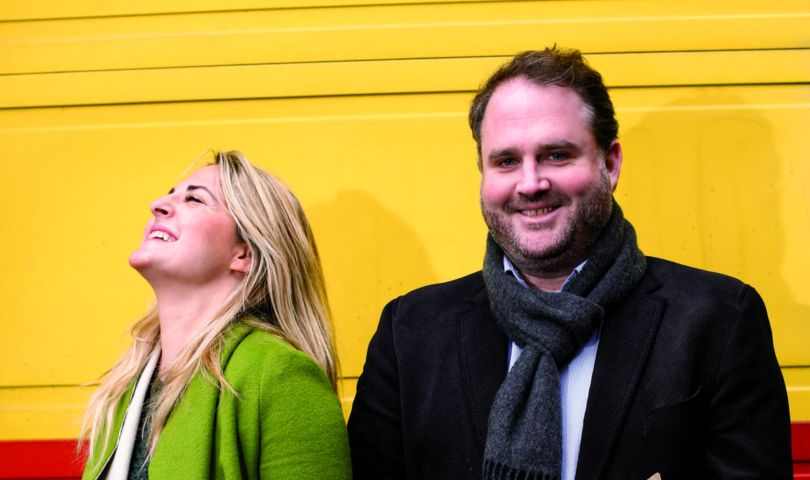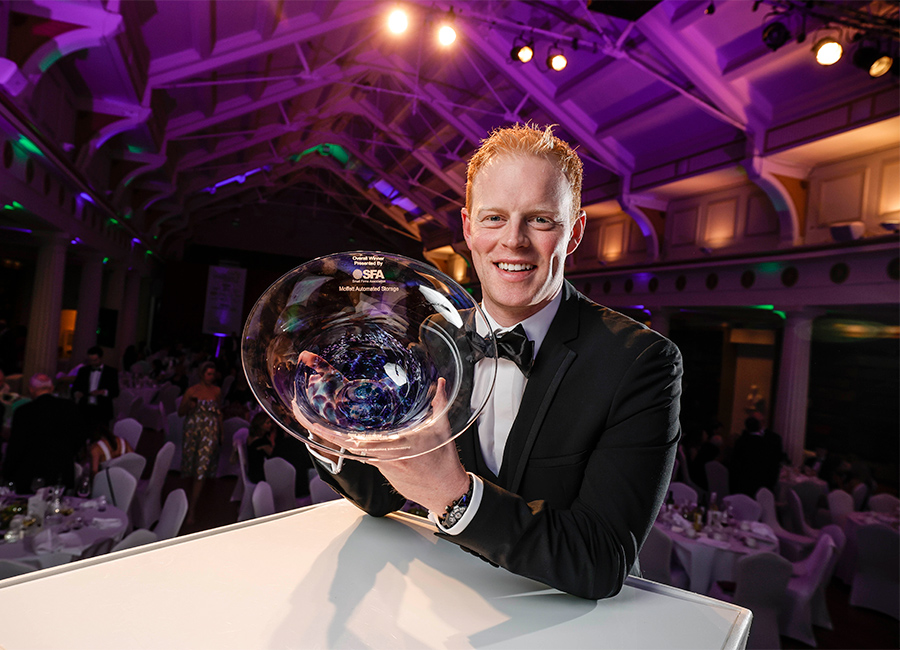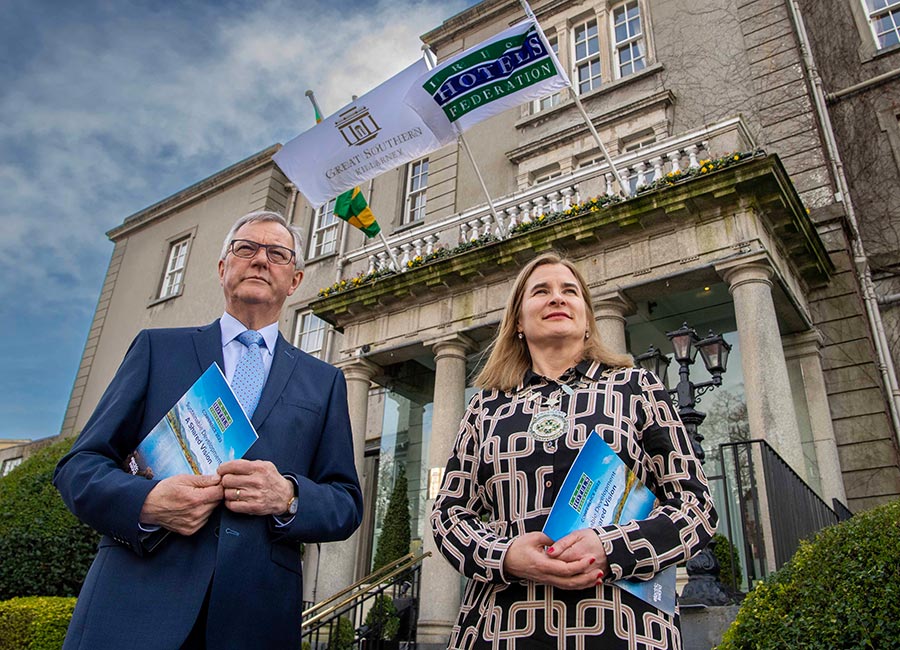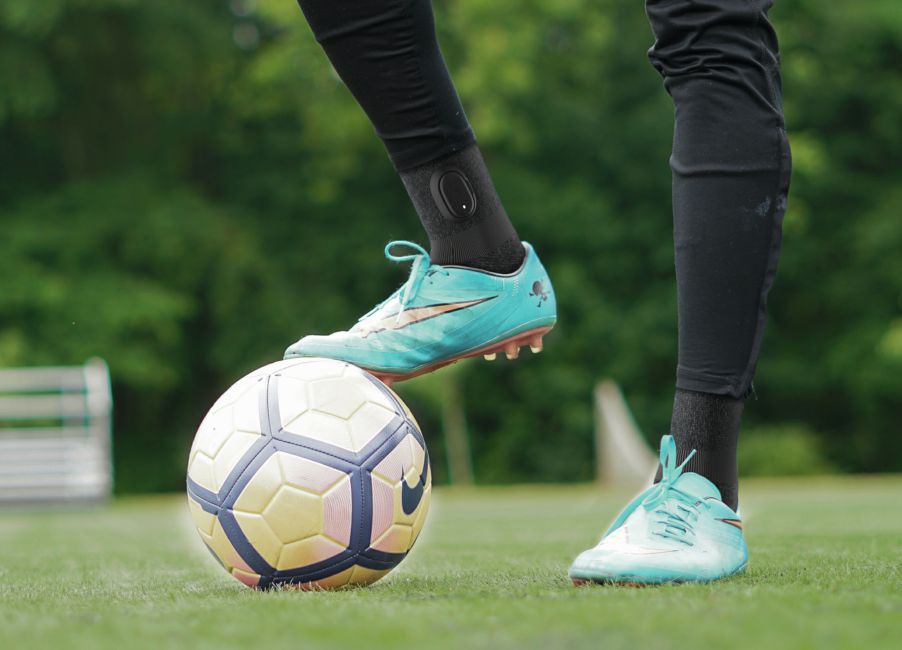The clue as to what this company does is in the name – Eirespan. Eire as in Éire for Ireland, and Span as in Spanish or Spain. Bridging the two countries is what Eirespan is all about, with two enterprising Spaniards at the helm.
The business is all about sourcing continental foods for Irish retailers, and Monica Matellano and her husband and business partner Ioseba Larregui (pictured) had the idea long before most Irish consumers could tell their tapenade from their chorizo.
And what a bright idea it has proved to be. Eirespan Ltd was incorporated in December 1999 when Monica was 27 and Ioseba was 26. Fifteen years later, on the back of €3 share capital, Eirespan’s net worth had grown to €950,000 at the end of 2014.
A sister company, Eirespan Distribution Ltd, had net worth of €970,000 on the same date. All from a small business that commenced trading from the kitchen in the couple’s north Dublin home.
Now the business is located behind the 3 Arena in an industrial part of East Wall. To get to the Eirespan premises you pass a builder’s yard full of construction junk. The Eirespan warehouse used to be something else; now the old concrete units have been remodelled as cold stores where produce from all over Europe is piled high.
The location suits Eirespan. Trucks roll off the ferries and have a short drive to the warehouse. Product is shipped to supermarket distribution depots or to individual shops. The company has its own depots in Mallow and Galway for on-distribution too.
Spain-free Zone
Monica Matellano’s English is good, but not perfect. She came to Dublin in the 1990s after graduating to improve her English, and then stayed here to do a Master’s degree in supply chain management. She says she always had the urge to start her own business and the inspiration occurred when she noticed that Dublin food shops were a Spain-free zone.
So she returned to Spain and visited chorizo factories, decided on the Sol brand name and she was on her way. On the customer side, Musgraves gave Eirespan its first break, though Matellano still had to convince individual SuperValu store owners that Sol Chorizo deserved shelf space beside all that packed ham.
Working in Matellano’s favour was the fact that 15 years ago, few enough people in Spain spoke English, especially in the meat factories. “It’s always very difficult to run a business and when it’s not your language it’s even more difficult,” she says.
“At the beginning I could understand everything, but the difficulty was to talk English, because in Spain the English is very bad. But this was also an opportunity for me. Many companies would ring me because they can’t speak English and I can. In France the English is so bad it’s unbelievable."
The early days of Eirespan’s development was largely direct deliveries to independent retailers. After a few years, and with the SuperValu imprimatur, the company secured supply deals with other multiples. Eirespan now deals with all the supermarket chains except Lidl, and much of the trade is sourcing own-brand product.
From chorizo and Serrano ham beginnings, the Eirespan meats portfolio has extended to salamis, Parma ham and specialty treats like Lomo Iberico. The cheese catalogue includes Parmigiano Reggiano, Gouda, Feta, Edam, Emmental and goat's cheese.
There are olives of various hues and sundried tomatoes, tapenades, houmous, pestos and fromage frais. Also in the range are pre-prepared Spanish omelettes and combo packs of salamis, cheese and breadsticks.
All these products are sold in Sol packaging. But the bigger volume comes from the own-brand supply. Part of the reason for Eirespan’s success is that the company works with multiples on product development. So if SuperValu wants a certain type of houmous in a certain size of pack, Eirespan will source it for them, from manufacture to delivery.
Though the same chorizo maker may be supplying four or five different retailers in Ireland through Eirespan, they all have different brand packaging and maybe different pack sizes.
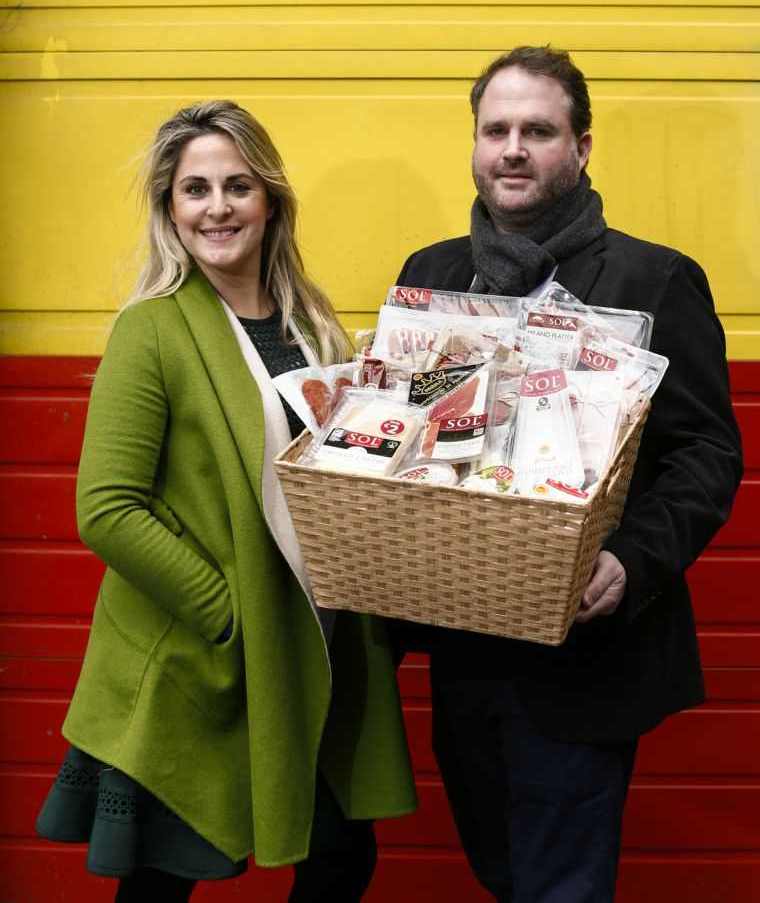
Rebrand
As these niche continental foods have become more mainstream with the Irish palette, why don’t the multiples cut out Eirespan and deal direct with the factory in Spain or Greece? One day they possibly will, which is why the Eirespan principals have decided to give the Sol brand a makeover this year. In the meantime, marketing manager Darren Keating explains that just-in-time delivery suits the big buyers.
“SuperValu might want 40 boxes of chorizo on Monday, 20 boxes on a Tuesday and 70 boxes on a Thursday,” says Keating. “If they want one box that day, we deliver one box. We have about 200 products that we supply to SuperValu/Musgraves. So we can give them five boxes of chorizo, 10 boxes of olives and 20 boxes of cheese that day because it all adds up to economies scale.
“Individually our products wouldn’t be feasible, but because of the range it works. The competitive advantage is the authenticity. Monica is Spanish and she has a fantastic understanding and passion for continental food.”
Matellano adds: “We bring expertise regarding a wide range of continental products. When we started, Irish consumers and retailers had little product knowledge in this area. Now that has changed. We used to sell exotic products but now they are familiar exotic.
"We are launching new products all the time and it’s a continuous evolution. We now manage hundreds of different products right across the range of meats to olives, cheeses, spreads and desserts.”
Delis and individual corner stores are an important customer base for Eirespan too. These customers indicated to Eirespan that they’d take more than the Chorizo Pamplona, so Eirespan invented a domestic Irish brand, Blackwater Valley.
On the van rounds, drivers can now supply Irish-made cheddar blocks, yoghurts, potato salads, coleslaw, garlic bread, sausages, rashers and black puddings.
Competition
Eirespan isn’t the only importer in the space of continental ‘familiar exotics’. “The retailers make sure we are all competing against each other and bidding against each other for their business to make sure that they receive the lowest price,” says Matellano.
“At every presentation, pricing margins are always an issue. But there is a significant cost involved in bringing Feta cheese from Greece all the way across Europe to Ireland. And with products like chorizo, you can supply it at a lower price but the quality won’t be the same.”
Matellano sees the next opportunity in developing more party lines of various products in the same packet, such as salami, cheese and breadsticks. She believes there is a growing market for snacking packs, and in tandem the company has a renewed focus on its branding.
The original Sol brand is being recast as ‘Taste of Sol’. “It’s important to build the brand because we never know what’s going to happen with the own brand contracts with supermarkets,” says Matellano.
“I want the Taste of Sol brand to be the biggest brand in our niche, and as part of that we are creating in-store fridges for the Taste of Sol brand. People say Sol is a really nice product but they need to get the brand message too.”
Photo: Monica Matellano and Ioseba Larregui have made a packet with ‘familiar exotics’ (Pic: Conor McCabe)


